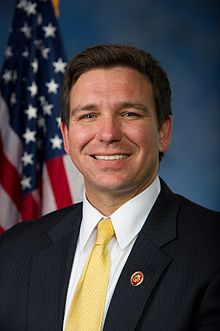Florida Governor Ron DeSantis has signaled he will sign the recently-passed property insurance reform legislation that the insurance industry and consumer advocates say will stem abuse of a policy feature known as assignment of benefits (AOB).
The Senate joined the House last Wednesday in passing the reform measure after having weighed the issue for seven years.
As a result, some homeowners covered by the state’s insurer of last resort, Citizens Property Insurance Corp., will see rate reductions or less dramatic rate increases as originally anticipated as the insurer plans to re-calculate its rate request based on the new law.*
By a vote of 25-14, the Florida Senate passed SB 122 that addresses the abuse of post-loss AOBs for residential or commercial property insurance claims and limits one-way attorney’s fees related to AOB agreements. The bill was a committee substitute for House Bill 7065, sponsored by Rep. Bob Rommel, which passed the House on April 11. The Senate bill was sponsored by Senator Doug Broxson, chair of the Banking & Insurance Committee.

DeSantis said he is ready to sign the bill and bring relief to Florida consumers, who are receiving rate increases statewide and experiencing difficulty obtaining coverage in some areas. The governor’s office said AOB lawsuits have exploded over the last 10 years.
“The exponential growth in AOB abuse has contributed to mounting insurance costs for Floridians for far too long,” said DeSantis. “In recent years, there have been calls for reform and [Wednesday], the Legislature took action. I thank them for their efforts in getting this done and I look forward to signing this meaningful legislation into law.”
The AOB reform bill will take effect July 1, 2019.
The bill’s provisions:
- Define “assignment agreement” and establishing requirements for the execution, validity, and effect of such an agreement
- Prohibit certain fees and altering policy provisions related to managed repairs in an assignment agreement
- Transfer certain pre-lawsuit duties under the insurance contract to the assignee and shifting the burden to the assignee to prove that any failure to carry out such duties has not limited the insurer’s ability to perform under the contract
- Require each insurer to report specified data on claims paid in the prior year under assignment agreements by Jan. 30, 2022, and each year thereafter
- Allow an insurer to make available a policy prohibiting assignment, in whole or in part, under certain conditions
- Revise the state’s one-way attorney fee statute to incorporate an attorney fee structure in determining the fee amount awarded in suits by an assignee against an insurer
- Require service providers to give an insurer and the consumer prior written notice of at least 10 business days before filing suit on a claim.
Florida Chief Financial Officer (CFO) Jimmy Patronis, a member of the Florida Cabinet who pushed hard for the reforms this session, also noted that the bill requires savings be passed along to consumers who are covered by Citizens Property Insurance Corp., which has borne the brunt of AOB abuse.
“A ‘no’ vote on this bill is a vote against savings for Florida consumers and everyone should take notice,” he said in a statement. “Tackling AOB abuse not only protects consumers but is essential to the financial health and stability of our state.”
In South Florida in particular, AOB lawsuits have expanded over the last 10 years. Citizens has filed for rate increases to offset litigation costs. It proposed rate increases for 97 percent of its homeowners policyholders for 2019.
Written into the bill is a stipulation stating Citizens “may not implement rate changes in 2019 for DP-3 and HO-3 policies unless the rate filing reflects projected rate savings from this act.”
Citizens said in a statement that its actuaries estimated reforms would reduce the statewide average rate need from 25.2% to 10.1% for homeowners policyholders. In South Florida, the average rate need would drop from 30.4% to 12.8%.
Citizens spokesperson Michael Peltier said in an e-mail to Insurance Journal the insurer is planning to refile its rate request in the coming months. It plans to release further details at a later date and will work with the Florida Office of Insurance Regulation (OIR) on timing.
“[This] vote is a critical step in our efforts to bring relief to our policyholders, who have had to pay the bill for runaway litigation and AOB abuse,” Barry Gilway, Citizens president, CEO and executive director.
Patronis said the legislation will also protect homeowners from being taken advantage of “during vulnerable times.”
“We fought for Florida homeowners this year and passed this bill to stop the man-made hurricane of rampant AOB abuse in our state that is driving up insurance rates. Bad actors have exploited loopholes in Florida law to take advantage of a system meant to empower consumers, and today families take back control of their insurance benefits,” Patronis said.
Was this article valuable?
Here are more articles you may enjoy.


 NYC Travel Snarled by Snow as Central Park Gets 15 Inches
NYC Travel Snarled by Snow as Central Park Gets 15 Inches  Tesla’s Austin Robotaxis Report 14 Crashes in First Eight Months
Tesla’s Austin Robotaxis Report 14 Crashes in First Eight Months  Explosive Wildfires Surge Through Oklahoma Panhandle and Kansas
Explosive Wildfires Surge Through Oklahoma Panhandle and Kansas  Bayer to Make $10.5 Billion Push to Settle Roundup Cases
Bayer to Make $10.5 Billion Push to Settle Roundup Cases 